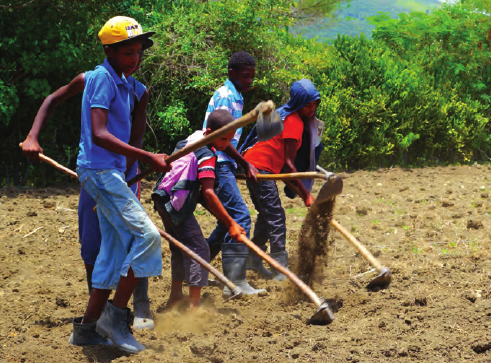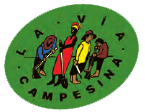Message from La Via Campesina International
As women, men, elders and youth, peasants, indigenous people, landless laborers, pastoralists and other rural peoples, we are struggling to defend and to recover our land and territories in order to preserve our way of life, our communities, and our culture. The agroecological peasant agriculture we practice is a basic building block in the construction of Food Sovereignty and is the first line in our defense of Mother Earth.
We are committed to producing food for people: the people of our communities, the peoples of our nations — rather than biomass for cellulose or agrofuels, or for exports to other countries. The indigenous people among us, and all of our rural traditions and cultures, teach respect for Mother Earth, and we commit to recovering our ancestral farming knowledge and adopting elements of Agroecology (which infact is largely derived from our accumulated knowledge) so that we may produce in harmony with, and take good care of, our Mother Earth.


To highlight the social and cultural principlesthat underlie our peasant view of agroecology,we put forth the following elements —those that we defend and reject:
We defend Agroecology as…
- Building autonomy
- Peasant and indigenous seeds
- A social, cultural, and political process and a tool for the collective transformation of reality
- Horizontal dialogue between peasant, indigenous, and “scientific” knowledge
- New familial relationships against patriarchy, where women play a key role
- Offering new and important roles to youth
- Liberating and strengthening our collective identity as peasants, indigenous peoples, and other social and cultural rural expressions
- Directed at feeding people healthy food produced in harmony with Mother Earth
- Communitarian, with anti-capitalist values
Our Agroecology is not…
- Technocentrism, academicism, reductionism, or top-down verticalism
- Agrotoxics, GMOs, or monoculture
- Mere input substitution and neoliberal organic farming that leaves monoculture intact
- Agribusiness and commercialism
- The privatization of knowledge and life
- The commodification of seeds, water, forests, biodiversity, carbon, and nature
- Land grabbing and large private estates (“latifundio”)
- Patriarchy and other forms of exploitation
- The separation of human beings from Nature

